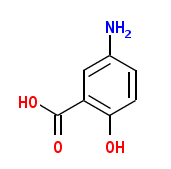What is inflammatory bowel disease?
Inflammatory bowel disease is the name of a group of disorders that cause the intestines to become inflamed (red and swollen). The inflammation lasts a long time and usually comes back over and over again.
If you have inflammatory bowel disease, you may have abdominal cramps and pain, diarrhea, weight loss, and bleeding from your intestines. Two kinds of inflammatory bowel disease are Crohn's disease and ulcerative colitis. Crohn's disease usually causes ulcers (open sores) along the length of the small and large intestines. Crohn's disease either isn't in the rectum at all, or it causes inflammation or infection with drainage around the rectum. Ulcerative colitis usually causes ulcers in the lower part of the large intestine, often starting at the rectum.
What causes inflammatory bowel disease?
The exact causes are unknown. The disease may be caused by a germ or by an immune system problem. Inflammatory bowel disease is not contagious. However, it does seem to run in families.
How is inflammatory bowel disease diagnosed?
Based on your symptoms, your doctor may suspect that you have Crohn's disease or ulcerative colitis. Your bowel movements may be tested for germs and the presence of blood. Your doctor will probably look inside your intestines with a sigmoidoscope or a colonoscope. In these procedures, your doctor uses a narrow flexible tube to look directly inside your intestines. Special x-rays may be helpful in diagnosing this illness.
How is inflammatory bowel disease treated?
The best thing you can do is take good care of yourself. It is important to eat a healthy diet. Depending on your symptoms, your doctor may ask you to cut down on the amount of fiber or dairy products in your diet. In addition to eating well, you need to get enough rest. It also is important that you learn to manage the stress in your life. When you become overly upset by things that happen at home or at work, your intestinal problems can get worse.
You will most likely be treated by a team of doctors. This team may include your family physician, a gastroenterologist (a specialist in stomach and intestinal disorders) and, possibly, a surgeon.
The goal of treatment is to get rid of the inflammation. Taking anti-inflammatory medicines can help. Some of these medicines are sulfasalazine (brand name: Azulfidine), olsalazine (brand name: Dipentum), and mesalamine (brand names: Asacol, Pentasa, Rowasa). An antibiotic, such as metronidazole (brand name: Flagyl), may be helpful for killing germs in the intestines, especially if you have Crohn's disease. You also may need to take a corticosteroid, such as prednisone.
If you have severe symptoms (such as severe diarrhea, fever, or vomiting) you may need to go to the hospital to be treated with special fluids and medicines that must be given intravenously (in your veins). If you have severe inflammatory bowel disease, you may need to take very strong medicines.
If your ulcerative colitis becomes so severe that it cannot be helped by medicines, it may be necessary to remove part or all of your colon surgically. Crohn's disease usually is not helped with surgery.
Because Crohn's disease and ulcerative colitis keep coming back and their symptoms cannot be predicted ahead of time, patients with these illnesses can become depressed. If you get depressed, talk with your doctor. An antidepressant medicine could help you feel better.
How can I get more information?
By asking your doctor questions, reading informational materials, and discussing your treatments with your doctor, you will be able to understand your illness and manage it better. Patient support groups are helpful, especially if you have severe disease.
COPYRIGHT 2005 American Academy of Family Physicians
COPYRIGHT 2005 Gale Group



